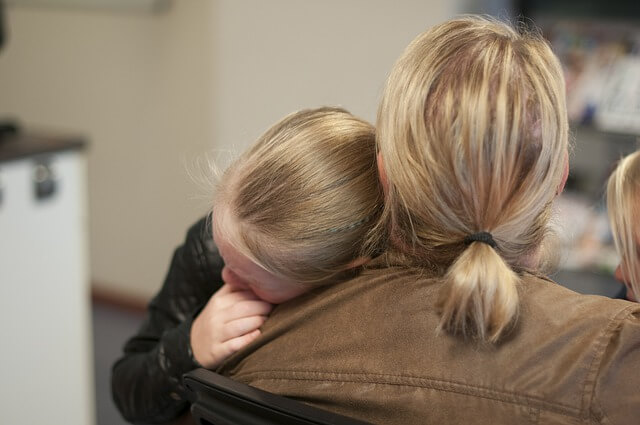Children perceive the world very differently from us. They have over-active imaginations that help them form their own version of how life works, at least until they grow old enough to understand more complex concepts. This can make it difficult to explain something serious, like a cancer diagnosis.
Cancer is a disease that can be hard to deal with. There are treatments out there that make survival possible, but there is no denying that overcoming cancer requires a fight. This fight affects everyone around you, including your family. You will have to explain what is going on to your children; however, this can feel like another mountain that you have to climb. This article will go through the steps you need to take when it comes to broaching the topic of a cancer diagnosis with a child.
Talk Together
Your partner is the first person you will tell about your diagnosis. They will have to deal with it in their own way; however, they are going to be your rock during the upcoming battle. Therefore, it is important to keep them involved with every step to best inform them on how to deal with your diagnosis.
A child views their parents as a team. You may disagree with your partner on things as you go through life, but kids realize that you are always on the same page regarding the big issues. That is why they will feel more at ease if you begin talking to them about cancer as a team. What’s more, this initial conversation may bring up some difficult questions that require you to think on your feet. Having an ally can provide your child with the answers to a question that you may struggle with and vice versa.
Stress How It Is not Their Fault
Younger children internalize the events around them and still believe that they are the main characters during their life journey. This belief system does not disappear until they reach their teenage years when they start to realize that the universe is random, and they gain a sense of empathy. Unfortunately, this attitude means that they can often believe that anything bad that happens within the home directly results from something they have done.
Therefore, the main thing that you should bring up in your initial discussion is how this happened. You do not need to go into the exact scientific detail, just cover the basics enough so that they understand that it was nothing they could have caused or prevented. Also, it is important to finish this part of the conversation by stating aloud that the cancer is not their fault.
Explain That It Isn’t Contagious
Cancer is scary no matter how much you understand it. Illness is a concept that children know and have come into contact with before, though very different. You will have stressed the importance of staying healthy and the role of germs when it comes to getting sick, which is why your child may be frightened about catching cancer themselves.
The next step in your initial conversation should involve putting these concerns to rest. You will have given them a rudimentary explanation of how you became ill, so try to reiterate how this disease cannot be passed from person to person. Your child is likely to have more questions later on, which is why you should leave your first conversation here. Give them time to mull over what they have learned and remind them that you are always there to answer any further questions.
Explain Changes Before They Happen
A cancer diagnosis is going to change your life no matter how advanced the spread. You may have to stop doing weekly activities, make frequent trips to the doctor, take time off work, or undergo bed rest as you receive treatment. These changes are necessary; however, they will not go unnoticed by your child.
As you go through the treatment procedures, it is a good idea to explain what is going to happen and why. This will give your child the chance to prepare for the change and provide them with context. Again, children have a different understanding of the world to us, and routine is important to them. Try to make sure they can perceive these changes correctly.
Treatment
Cancer treatments will differ depending on your type and the severity. However, this treatment is necessary at any stage to cure you. The treatment for cancer takes time, which means that you will be dealing with the side effects for a few months.
A child may not understand medicine completely, but they are aware of its role. That is why you may find it beneficial to talk openly about your treatment. It will help you to understand it better and provide something for your child to perceive as a balance to all the negativity surrounding your illness.
In fact, you can use resources from Ezra to learn all about treatments and diagnosis tools to lessen your own fear about the process. This means less fear for your child to pick up on. You can normalize terms like chemotherapy or spine MRI to build up a positive association between these treatments and your health.
Remind Them That They Are Not Alone

The scariest part of cancer for a child is the fear that they will lose you. There is always going to be media surrounding this type of illness, a lot of which will understandably portray it in a negative light. What’s more, your family may have come into contact with someone else that has unfortunately lost their battle with cancer.
The best thing you can do for your child during this time is reiterate that they are loved and will never be left alone. It will also serve to ground you as you continue to move forward.
Conclusion
Discussing a cancer diagnosis with a child is a long and complex process that cannot be covered in one article. Hopefully, these tips have given you the tools to start the journey. Everyone will have a different experience, but it is most important to stay strong.




